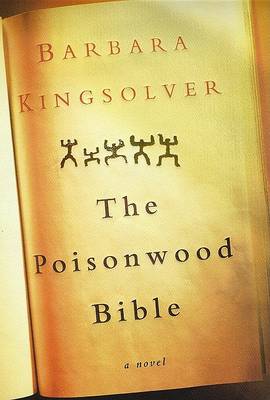Reviewed by clementine on
I struggled with Rachel a lot. Her poor vocabulary didn't quite seem believable, and there were inconsistencies. A seventeen-year-old girl would definitely know the word "participation", and we're meant to believe that she doesn't, then I don't really believe that she'd be able to pepper in words like "menagerie". In general, there wasn't a lot of development of the sisters' voices, and Rachel's stunted growth seemed bizarre. She was also just incredibly one-dimensional - racist, ignorant, shallow, self-centered, and stupid, with absolutely no humanizing qualities. I think her vulnerability, fear, and sense of displacement could have been explored more fully to make her a better-rounded character. As it is, I found it difficult to completely believe in her character.
The pacing was a little off for me too. So much of the book is set within the first year or so of the Price family's time in the Congo, and then it rushes through another thirty years of their lives. Pretty much everything that happened after the women left Kilanga felt like it was coming to the end of the novel. There were so many points that felt like a final chapter, and then it just kept going. I found the latter third of the novel much less compelling than the parts that took place in 1959/60 - they were aimless and deflated.
Because this book positions itself as a postcolonial work, I'm going to be very nitpicky with it. (Well, I probably would be anyway.) I was happy to read a condemnation of Western foreign powers, and the US specifically. But I'm not sure about the framing of Africa as a whole. Yes, the effects of colonialism are horrific and lingering. I don't think that poverty, famine, and disease should be downplayed. But I wish there had been more exploration of the resilience and strength of postcolonial societies without reducing Africa in general to an object of pity. It's a fine line! I personally found this book slightly on the wrong side of it. Perhaps that's to do with the fact that it is narrated by five white women whose whiteness and American-ness skews the way Africa is presented. I think there could have been a stronger, more focused historical critique of (neo)colonialism - as it stands, this is pretty one-dimensional, with "Europe and the US are terrible" as the thesis. (I don't mean to sound like an apologist for colonial powers - those implicated in colonialism should be held responsible. But this isn't exactly a nuanced take.)
Reading updates
- Started reading
- 13 October, 2019: Finished reading
- 13 October, 2019: Reviewed
